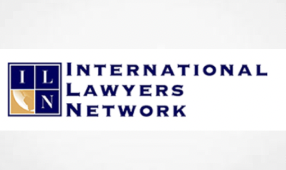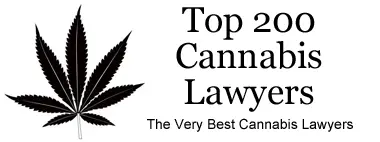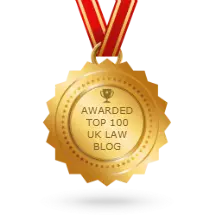Via JD SUPRA
[co-authors: Pragya Jain, Ashish Kumar]*
Introduction
Post-pandemic, there has been a significant rise in digital marketing worldwide. Companies are utilising platforms (“Platforms”) like Google Ads and various social media networks to connect with prospective customers. To showcase their products or services on these Platforms, businesses often use keywords or metatags to attract users searching for similar offerings. However, instances have emerged where companies use the trademarks of other businesses as keywords to advertise their own products or services. Companies are pouring huge amounts of money into ensuring their websites get noticed and as a result, some are adopting tactics like manipulating meta tags, framing, and using deceptive links to attract more visitors. Metatags are HTML elements that provide metadata about a webpage, such as descriptions or keywords, which help search engines categorize and rank pages.
This article examines whether the use of a trademark as a metatag or keyword in India constitutes trademark infringement under the Trade Marks Act, 1999 (“Act”). In India, a registered trademark is infringed when a person, who is neither the registered proprietor nor an authorized user, uses the mark in the course of trade without due cause and who does so in a way that either unfairly benefits from or harms the distinctive character or reputation of the trademark in India.1
Judicial Precedents on Infringement by “Metatags” and “Keywords”
In the case of Google LLC vs. DRS Logistics (P) Limited2, the Delhi High Court dealt with the issue of using registered trademarks as keywords in Google’s advertising program. DRS alleged that Google encourages use of registered trademark as keywords for the purpose of advertisement on Google ads. DRS contented that this practice diverted online traffic from the trademark proprietor’s website to the advertiser’s website, which constitutes infringement under the Act. DRS further contended that keywords and metatags serve similar functions, as both can redirect traffic from the trademark owner’s site to that of the advertiser or infringer.
Google argued that using a keyword in its advertising program does not qualify as “use” under the Act, even if the keyword is identical or similar to a registered trademark. Google asserted that any liability for trademark infringement should rest with the advertiser using the keyword. Google is merely an intermediary having safe harbour under Section 79 of the Information Technology Act, 2000. Additionally, Google differentiated metatags from keywords, explaining that metatags form a part of its website’s source code and influence search engine rankings. Whereas keywords are solely used for ad targeting and are not embedded in the website code. Further, keywords are not visible to users and serve only to facilitate ad shortlisting.
The court noted that the use of trademarks as keywords qualifies as “use” under Sections 2(2) and 29(6) of the Act. It further clarified that liability for infringement would rest with Google and not the advertiser. However, the court emphasized that using a trademark as a keyword does not automatically constitute infringement. Applying the doctrine of Initial Interest Confusion, the court ruled that if a user is initially misled by sponsored links containing the trademark, it amounts to infringement under Section 29(2) of the Act. Additionally, the court observed that metatags and keywords serve a similar purpose of displaying advertisements and attracting traffic and since the use of metatags is considered infringement, the same principle would apply to keywords.
In the case of MakeMyTrip India Private Limited v. Booking.com3, the Single Judge Bench of the Delhi High Court addressed the plaintiff’s request for an injunction to protect its registered trademarks, as the defendant allegedly used MakeMyTrip’s marks as keywords in Google Ads. The Court examined Section 29 of the Act and noted that using a trademark to unfairly capitalize on its reputation amounts to infringement under the Act. The defendant’s use of the keyword “MakeMyTrip” was found to potentially exploit MakeMyTrip’s goodwill. The Court recognized the harm caused to the trademark owner and granted an injunction in favor of MakeMyTrip. Subsequently, Google LLC filed an appeal before the Division Bench of the Delhi High Court, seeking to overturn the Single Judge’s order restraining Booking.com from using “MakeMyTrip” as a keyword. The Division Bench overruled the Single Judge Bench’s decision and observed that the use of “MakeMyTrip” trademark as a keyword by Booking.com doesn’t constitute infringement under Section 29(8) of the Act. The Division Bench opined that “use of trade marks as keywords by competitors absent any confusion or deceit, did not per se amount to infringing use”. Further the Division Bench also observed that the Section 29(4) of the Act would not be applicable as similar services are offered by both the companies. Thereafter, MakeMyTrip challenged the Division Bench’s ruling, and the case is now sub judice before the Delhi High Court.
Similarly, in Mattel Inc. & Ors. v. Jayant Agarwalla & Ors4., the court addressed the issue of search engine indexing and the use of meta-tags, ruling that utilizing trademarks as meta-tags constitutes infringement. In Kapil Wadhwa & Ors. v. Samsung Electronics Co. Ltd5., the Delhi High Court granted an injunction against the defendants for using the plaintiff’s registered marks as meta-tags. This ruling was later upheld by the Division Bench.
Additionally, in People Interactive (I) Pvt. Ltd. v. Gaurav Jerry6, the Bombay High Court examined the defendant’s unauthorized use of the plaintiff’s registered mark “shaadi.com” as a meta-tag and determined that it amounted to trademark infringement. The Court observed that this use diverted traffic and caused harm to the plaintiff’s registered mark. Moreover, the Court awarded damages to the plaintiff for the losses incurred due to the unauthorized use of the trademark.
Conclusion
In view of the aforesaid judicial precedents, the courts have consistently held that the use of “Keywords” or “Metatags” can lead to trademark infringement under Section 29 of the Act. Courts have clarified that “use” in this context encompasses digital advertising, acknowledging that employing trademarks as keywords can constitute infringement if it causes consumer confusion or unfairly exploits the trademark’s reputation. Cases such as Google LLC vs. DRS Logistics and MakeMyTrip India Pvt. Ltd. v. Booking.com highlight the importance of protecting trademark owner’s rights in the digital era. The application of the doctrine of Initial Interest Confusion helps protect consumers from misleading advertising, although it introduces subjectivity, especially when assessing what constitutes “confusion” in the context of digital marketing.
While in the aforementioned cases, the courts have addressed the issue of trademark infringement in the digital space, the ever-evolving nature of digital advertising necessitates ongoing legal adaptation. As businesses increasingly rely on keywords and metatags for marketing, it is crucial to strike a balance between protecting intellectual property rights and fostering fair competition. Further legal clarity and possible legislative adjustments may be needed to establish clearer boundaries for the use of trademarks in online advertising. In the end, businesses must navigate these complexities carefully to mitigate legal risks and ensure the fair use of trademarks in the digital marketplace.
[1] Section 29(4)(c) of the Trademark Act, 1999
[2] 2023 FAO(OS)(COMM) 2/2022
[3] CS (COMM) 268/2022
[4] 2008 (153) DLT 548
[5] 194 (2012) DLT 23
[6] 2014 SCC OnLine Bom 4607
*LexCounsel Law Offices




